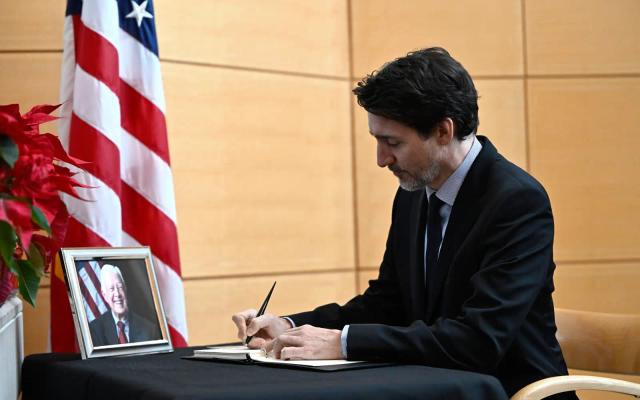In an unprecedented response to President Donald Trump‘s imposition of tariffs, Canadian Prime Minister Justin Trudeau has announced Canada’s strategic retaliation plan. On February 1, 2025, Trudeau detailed how Canada will counter the 25% tariffs imposed by the U.S. on Canadian goods with its own set of retaliatory measures, targeting $155 billion in American imports.
Trudeau, speaking with a mix of resolve and regret, emphasized the necessity of this action due to what he described as an unwarranted attack on Canadian industries and consumers. The Canadian plan includes an immediate 25% tariff on $30 billion of U.S. goods, with a further $125 billion to follow in 21 days, giving Canadian businesses time to adjust. Products like Florida orange juice, Kentucky bourbon, and Midwest energy are specifically targeted, aiming to impact Republican strongholds in the U.S.
This response has been framed not just as economic defense but as a stand for sovereignty and international trade norms. Trudeau’s announcement included calls for Canadians to support local products over American ones, hinting at a broader cultural and economic shift. This move has garnered widespread support among Canadians, with polls indicating an overwhelming 82% backing for retaliation.
The economic implications are vast. Analysts predict potential spikes in inflation in Canada, risks of recession, and a significant hit to the U.S. economy, particularly in states heavily reliant on exports to Canada. The auto, energy, and manufacturing sectors in both countries are poised for turbulence.
The political atmosphere is charged, with U.S. politicians like Marsha Blackburn and Ron Johnson reacting sharply to what they perceive as Canada playing political games. However, Canadian leaders, including opposition figures like Pierre Poilievre, have rallied behind Trudeau’s strategy, showing a rare moment of political unity in the face of external pressure.
As this trade skirmish unfolds, the world watches to see if this is a brief spat or the beginning of a prolonged economic conflict between two neighbors historically known for their close ties.





